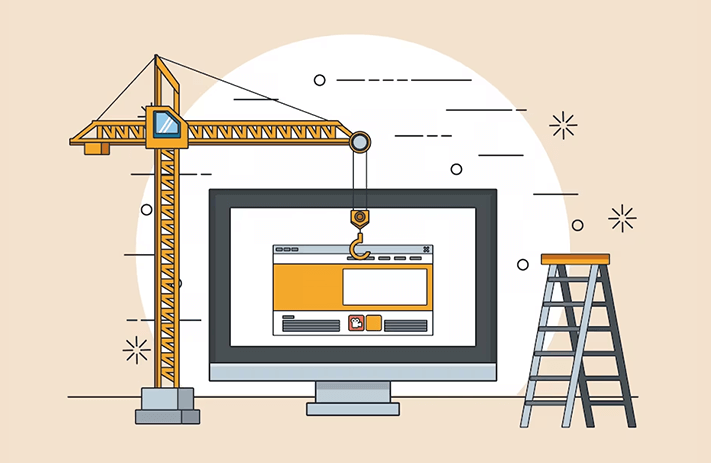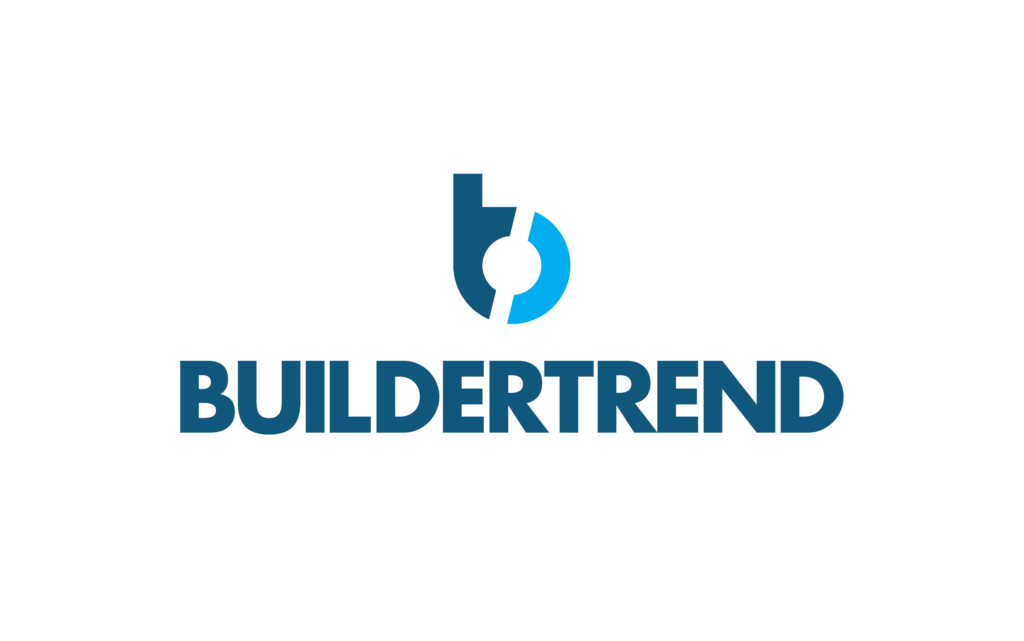The construction industry is one of the most competitive and diverse industries, which implies the participation of many parties, the presence of various stages and strict deadlines. Due to the need to increase profits while reducing costs, more construction companies are embracing construction software development.
In this blog post, you will learn about the key aspects of construction management software, including its features, advantages, necessary tech stack, and costs. Whether you are a developer or a construction business that wants to implement technology, this guide will be very useful in understanding construction software development.
- What is Construction Management Software and How Does It Work?
- Who Needs Construction Management Software?
- Benefits of Construction Software Development
- Top Construction Management Software Tools Available in Market
- Best Features to Consider for Construction Software Development
- Required Tech Stack for Construction Software Development
- Construction Software Development – Factors Affecting the Cost
- How Octal Can Help You Develop Custom Construction Management Software
- Conclusion
What is Construction Management Software and How Does It Work?
Construction Management Software is a sophisticated solution intended to help with the management of construction projects. Such activities can encompass intricate and varied processes which take a lot of effort and time to be properly organized and effectively implemented. This software plays a significant role in realizing these goals by consolidating key functions that are important for project management.

How It Works:
Fundamentally, construction management software can be defined as an information storage and retrieval system where all information about a project is stored. It means that all the team members and stakeholders have access to the latest information, which is vital for effective decision-making. The software is usually cloud based, thus easily accessible from anywhere, good for a team that may be in different locations.
Any information entered into the system (for example, progress reports and records, used resources, and expenses) is processed and can be presented in the form of tables, diagrams, or reports to facilitate analysis and decision-making. Reminders and messages can be set to remind the users about certain events or due dates so as not to miss essential tasks.
In general, construction management software facilitates project management processes, decreases the impact of human mistakes, and improves communication and project results. It is one of the most important tools of construction management nowadays, created to address the challenges of today’s construction projects.
Who Needs Construction Management Software?
Contractors
Contractors can benefit from construction software development as this will help in the management of projects, resources, and time. It assists in organizing work and documenting activity, as well as in controlling the timely and efficient completion of tasks. Real-time updates and periodic reports help make better decisions, while the overall management of projects becomes more efficient with this software.
Project Managers
Construction managers utilize construction management applications in the assessment of project status, work division, and schedule compliance. The tools include schedules, resources, and performance reports, giving the project managers the ability to oversee all aspects and solve problems as they arise or prevent them from happening in the first place.
Architects and Engineers
Construction management software is essential to architects and engineers to ensure collaborative design and project management. Using the software, they are able to share and compare the designs; track modifications and make certain that all users are on the same page. Its document management and communication tools help avoid misunderstandings and enhance project outcomes.
Related Post: Document Management Software Development- Cost and Features
Owners and Developers
Construction software development helps the owners or developers to track the status, budget, and progress of their construction project. This way, the software delivers real time status and reports to enable informed decision making, monitor risks and guarantee that the project delivers to expectations. It also helps in interaction with the contractors and project managers.
Subcontractors
Subcontractors use construction management software to track and schedule their responsibilities and resources within a broader project. The software assists them in overseeing their activities, reporting to the main contractor and meeting the required project timelines. It also has capabilities for resource management and communication which enhances productivity and coordination.
Benefits of Construction Software Development
Improved Efficiency
Construction software development automates several construction related activities to eliminate repetitive tasks and improve on their productivity. Some of the aspects like scheduling, resource allocation, and real-time tracking assist in saving time as well as streamlining the working of the projects. This enhanced efficiency leads to faster delivery of projects and utilization of resources more effectively.
Related Post: HRMS – Human Resource Management Software Development Cost & Features
Better Collaboration
Integrated communication and collaboration features of construction management software improve the efficiency of cooperation among project participants, members, and clients. Instant messaging, document sharing, and collaboration tools are useful to keep people up to date and working in unison. This creates a good working relationship between the project participants, thus eliminating misunderstandings that may lead to poor project delivery.
Enhanced Decision-Making
Real time data, analytics and reporting tools in construction software development give teams detailed information on the progress of a project. It can provide managers with timely information on the quality, costs, and utilization of resources, which is useful for decision-making. This is useful in preventing problems before they arise and planning for modifications that would ensure the project remains on the right track.
Cost Control
In terms of budget and expenses, construction software development allows tracking them in real-time and, thus, managing project costs efficiently. This means that cost overruns can be easily detected through regular monitoring of financial data and corrective actions can be taken. This type of financial monitoring helps in checking the costs in specific projects so that financial burdens are minimized and profitability is maximized.
Increased Accountability
The software helps to improve the accountability since role, responsibility, and tasks are clearly determined for each team member. Features such as assigning tasks, tracking progress and performance management make sure that all parties are abreast with their responsibilities and timeframes. This increases the rate of task execution and project success and inculcates a culture of responsibility amongst team members.
Top Construction Management Software Tools Available in Market
1. Procore

Procore is a construction management software with features for project management, accounting, quality and safety, and onsite productivity. It helps the users to plan the construction project from the planning stage to the implementation stage, thus facilitating effective construction project management. Real-time communication and collaboration, document control, budgeting tools, and reporting services are among the strong characteristics of Procore, which many construction professionals use to improve the project outcome.
2. Buildertrend

Buildertrend is a cloud-based construction management software that focuses on the residential builders, remodelers, and specialty contractors. It offers project management tools, customer management tools, and financial management tools, thereby simplifying the construction process. Some of the functionalities are scheduling, budgeting, document organization, and client collaboration which can all be done online through any device. Buildertrend assists in reducing costs and time, managing client relationships more effectively, and ensuring timely and accurate project completion.
3. PlanGrid
PlanGrid is a construction productivity software that enables teams to access and share project plans, markups, photos and reports across devices. It makes collaboration possible by allowing the sharing of updates and documents. Features of PlanGrid include documenting the version control, the punch list, and the task tracking to provide updated information to users. This tool proves helpful in maintaining the accuracy and enhancing the communication on the construction sites.
4. CoConstruct

CoConstruct is a project, financial, and customer management software that is ideal for custom home builders and remodelers. It has features like scheduling, budgeting, and communication with clients which makes the project easier to handle. CoConstruct facilitates all aspects of the construction process from beginning to end so that builders can provide excellent work while also building good client relations. Due to its simple navigation and effective performance, it can be regarded as an essential tool for the construction of houses and other buildings.
5. Fieldwire

Fieldwire is a field management software that helps construction teams improve efficiency with task management, plan review, and issue tracking features. It enables teams to work simultaneously, monitor their progress, and easily address challenges. The mobile-first design of Fieldwire means that every team member has access to project updates no matter the location, enhancing communication and decision making on the field. This platform is perfect for making sure that construction projects are on track and that everything is going as planned.
Best Features to Consider for Construction Software Development
Project Planning and Scheduling
A comprehensive and efficient project planning and scheduling tool enables the user to plan, schedule, and manage the project’s timeline. Tools such as Gantt charts, calendar view, and dependency help in organization and tracking of project progress thus enhancing the overall productivity and avoiding time wastage.
Resource Management
Resource management features enable project managers to monitor and control resources like manpower, tools, and supplies. It should be able to give real-time views of the availability, usage and scheduling constraints of the resources. Managing resources effectively minimizes wastage of resources, frequent breakdowns or shortages which would lead to time wastage and hinder workflow.
Budgeting and Cost Control
Some important features that should be included in real-time budgeting and cost control are expenses tracking and budgets management. The software should include options such as cost assessment, expenditures, and financial statements. This assists in preventing cost control issues where costs exceed the set budget for projects and financial resources.
Customizable Dashboards
Users can personalize the interface by choosing specific widgets to be displayed as well as KPIs. This construction software development feature enriches the user experience by enabling the immediate retrieval of necessary information, thereby improving the decision-making process and overall project control.
Integration with Other Software
Construction management software should be interoperable with other tools and systems employed in construction such as accounting systems, BIM (Building Information Modeling), and ERP software development (Enterprise Resource Planning). This leads to consistent data input across the various platforms, more effective working process, and better project organization due to the use of a single tool.
Required Tech Stack for Construction Software Development
Tech stack is an important factor in construction software development because the technology used to build the software needs to be strong and adaptable to support the software. Here are the essential components:
Front-End Development:
- HTML5: For structuring web content.
- CSS3: For styling and layout.
- JavaScript: For interactive features.
- Frameworks: React.js, Angular.js, or Vue.js for building dynamic user interfaces.
Back-End Development:
- Programming Languages: Node.js, Python, Ruby, or Java for server-side development.
- Frameworks: Express.js, Django, Ruby on Rails, or Spring Boot for building robust back-end systems.
- Databases: SQL databases like PostgreSQL or MySQL, and NoSQL databases like MongoDB for data storage and management.
APIs and Integrations:
- RESTful APIs: For enabling communication between different software components.
- GraphQL: For efficient data querying and manipulation.
Cloud and DevOps:
- Cloud Platforms: AWS, Google Cloud, or Microsoft Azure for scalable and secure cloud infrastructure.
- CI/CD Tools: Jenkins, Travis CI, or CircleCI for continuous integration and deployment.
Mobile Development:
- Native Development: Swift for iOS and Kotlin for Android for building native mobile apps.
- Cross-Platform Development: React Native or Flutter for developing cross-platform mobile applications.
Security:
- Authentication: OAuth2, JWT for secure authentication.
- Encryption: SSL/TLS for secure data transmission.
Construction Software Development – Factors Affecting the Cost
Scope of Features
The general rule is that the greater the number of features and functions that are incorporated into the software, the more expensive it will be to develop. The key activities, such as project planning, scheduling, and document management, will be cheaper compared to the extra features like real-time analysis, mobility, and connections with other applications.
Technology Stack
Technology stack selection can affect the construction software development cost. Open-source technologies and frameworks are generally cheaper while the premium technologies and platforms may be costly.
Development Team
The size and experience of the team providing software development services is also an important factor that decides the cost. Using more experienced developers and specialists may be more expensive but will help in achieving higher quality and faster development.
Project Timeline
Cost relates to the development timeline. Quicker timeliness can mean that more resources are consumed and the project is more costly, on the other hand, long timeliness means that the expenses are spread out but the project is not launched as soon.
Estimated Cost Breakdown
- Basic Construction Management Software: $50,000 to $100,000.
- Mid-Range Construction Management Software: $100 000 – $250 000
- Advanced Construction Management Software: $250,000 – $500,000+
These estimates are for a full SDLC, which comprises the planning, design, development, software testing services, deployment, and support phases.
How Octal Can Help You Develop Custom Construction Management Software
Specialization in the field of Construction Management Software Development
Octal has experienced developers, designers and project managers to work on construction management software development. This helps to guarantee that the software will suit your construction business requirements as it is developed by experts.
Comprehensive Solutions
Octal provides all-round construction project management software development solutions including software development consulting and requirement assessment, system design and development, testing, and deployment. This way they guarantee that every aspect of the project has been considered.
Customization and Scalability
Octal creates applications from scratch which can be easily expanded and stretched as per the needs of the organization. They aim at creating software solutions that can be modified according to future requirements and trends.
Quality Assurance
Octal employs strict quality assurance standards to ascertain that the delivered software is bug-free, safe, and efficient. This makes them dedicated to providing a quality product that is dependable and easy to use.
Conclusion
The creation of construction software is not a mere incorporation of an application; it is a strategic decision on the side of a company. Construction management software is the right tool that helps in construction coordination as it provides cohesion to all stakeholders and helps in successful construction. Such technologies will only become even more significant in the future, as more innovations – from artificial intelligence to machine learning and advanced analytics – continue to reshape the construction project management landscape.






















